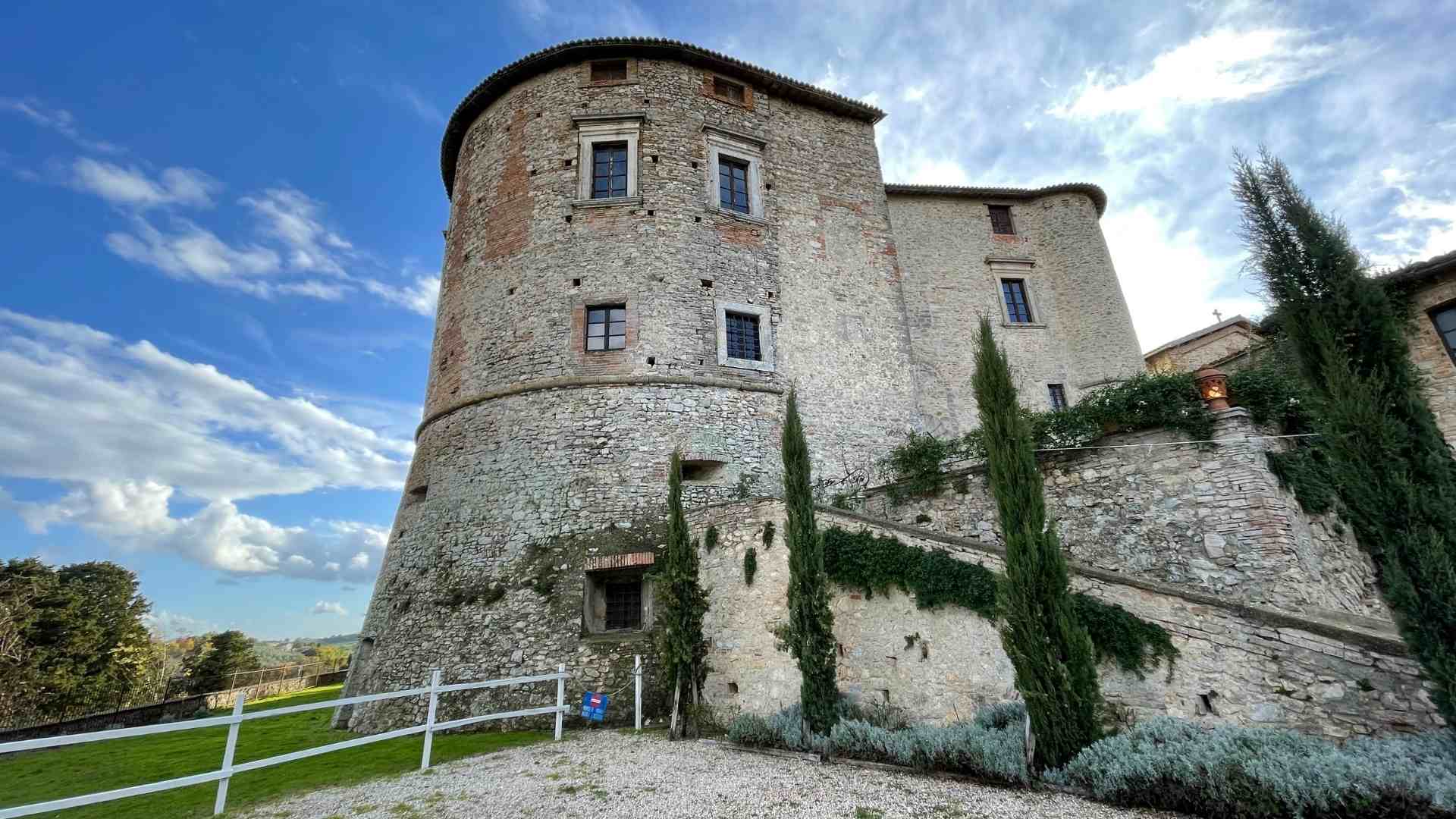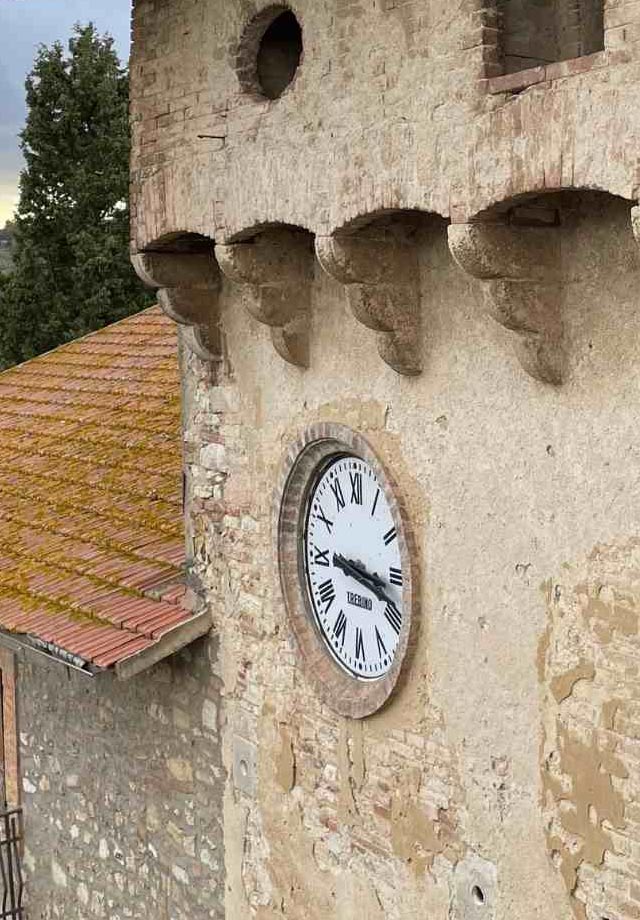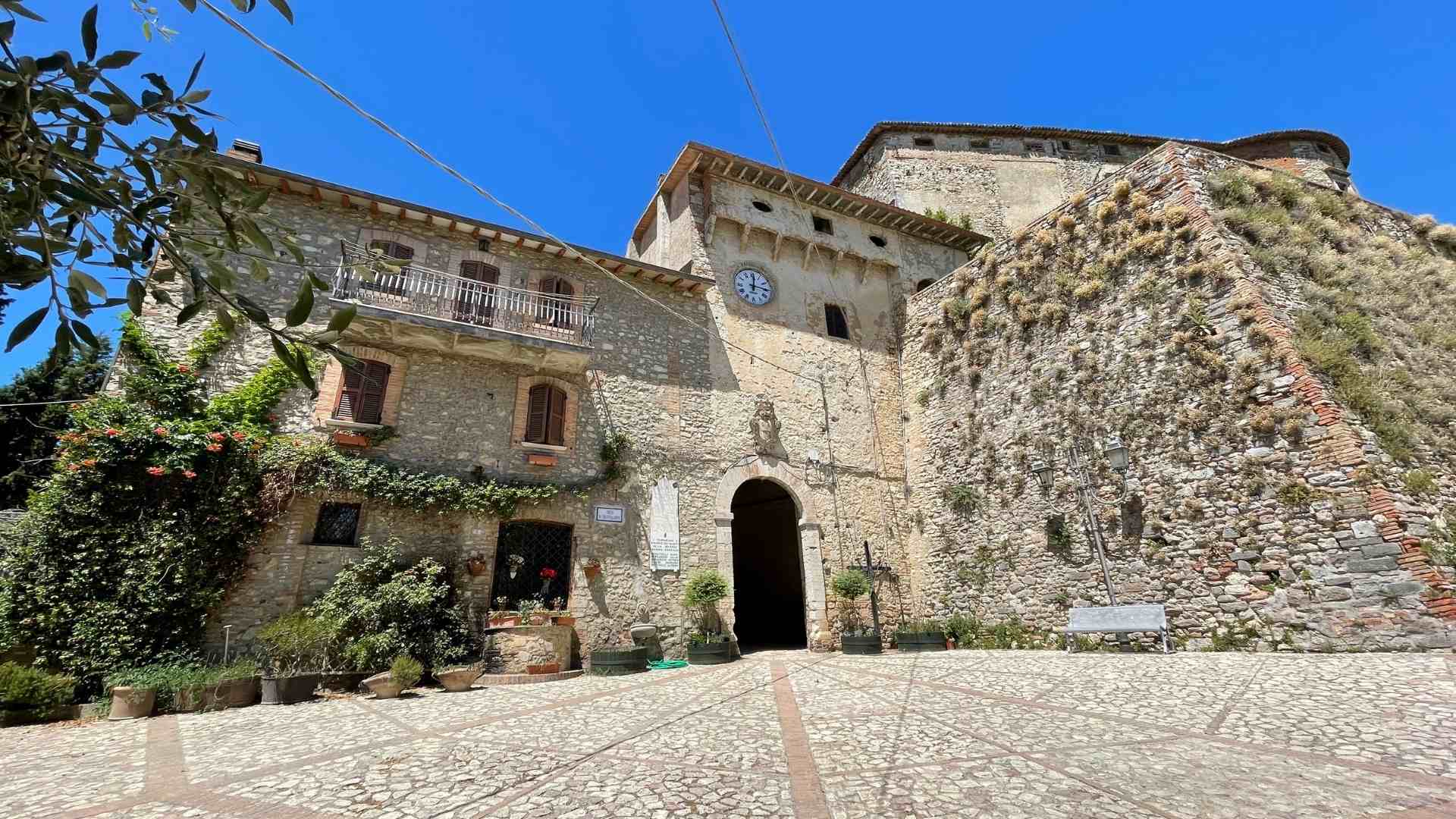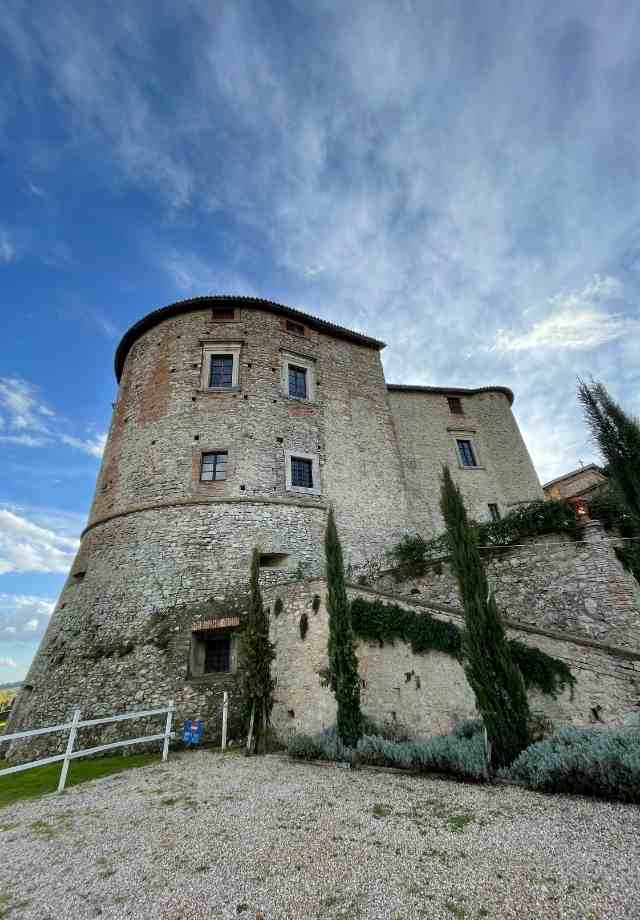
punto di interesse


Dominated by a large fortified fortress with two semicircular towers whose origins date back to the eleventh century, the Castle of Sismano stands with its proud bulk dominating the territory below in the municipality of Avigliano Umbro.
From the main access door that protects the village that goes up to the second access, the church and the palace with its garden, the Castle of Sismano – today partly a period residence – is a place that tells the suggestion of its ancient history.
According to tradition, the name of the castle derives from a Roman veteran of the Gens Sisimia to whom this territory was assigned by Augustus.
Located along the so-called Byzantine Corridor, around 1000 it came under the control of the Arnolfi. It is known that it lost its walls in 1254 as a result of the devastation suffered by the Guelphs of Orvieto, Perugia, Spoleto, Narni and Florence against the Ghibellines of Todi who held the influence and control. That is why, ended up under the parish of Santa Vittorina in 1290, in the documents of the time it appears as a “villa” and no longer as a “castle”.
It was after several vicissitudes that saw it pass under the influence of the Papal States that in 1426 Sismano returned to the jurisdiction of Todi, the inhabitants obtained the exemption of taxes with the obligation to rebuild the walls.
In the same year the town was occupied by Matteo Chiaravalle and returned to be the scene of clashes. Only at the end of the fifteenth century the Atti managed to recover the castle and forced the inhabitants to participate in the bloody attack that in 1500 was launched against the Chiaravalle and the Ghibellines in the territory of Acquasparta where they had taken refuge and where Altobello Chiaravalle was defeated and slaughtered.
At the beginning of the seventeenth century the Corsini family became the owner of Sismano, acquiring the lordship together with Casigliano and Civitella. The three castles in 1629 were erected as a marquisate by Pope Urban VIII and the first marquis was Filippo Corsini.
At the end of the nineteenth century the hamlets of Sismano, Casigliano, and Rosaro asked to be constituted as an autonomous municipality, but were instead distributed respectively to the Municipalities of Avigliano Umbro and Acquasparta.

Dominated by a large fortified fortress with two semicircular towers whose origins date back to the eleventh century, the Castle of Sismano stands with its proud bulk dominating the territory below in the municipality of Avigliano Umbro.
From the main access door that protects the village that goes up to the second access, the church and the palace with its garden, the Castle of Sismano – today partly a period residence – is a place that tells the suggestion of its ancient history.
According to tradition, the name of the castle derives from a Roman veteran of the Gens Sisimia to whom this territory was assigned by Augustus.
Located along the so-called Byzantine Corridor, around 1000 it came under the control of the Arnolfi. It is known that it lost its walls in 1254 as a result of the devastation suffered by the Guelphs of Orvieto, Perugia, Spoleto, Narni and Florence against the Ghibellines of Todi who held the influence and control. That is why, ended up under the parish of Santa Vittorina in 1290, in the documents of the time it appears as a “villa” and no longer as a “castle”.
It was after several vicissitudes that saw it pass under the influence of the Papal States that in 1426 Sismano returned to the jurisdiction of Todi, the inhabitants obtained the exemption of taxes with the obligation to rebuild the walls.
In the same year the town was occupied by Matteo Chiaravalle and returned to be the scene of clashes. Only at the end of the fifteenth century the Atti managed to recover the castle and forced the inhabitants to participate in the bloody attack that in 1500 was launched against the Chiaravalle and the Ghibellines in the territory of Acquasparta where they had taken refuge and where Altobello Chiaravalle was defeated and slaughtered.
At the beginning of the seventeenth century the Corsini family became the owner of Sismano, acquiring the lordship together with Casigliano and Civitella. The three castles in 1629 were erected as a marquisate by Pope Urban VIII and the first marquis was Filippo Corsini.
At the end of the nineteenth century the hamlets of Sismano, Casigliano, and Rosaro asked to be constituted as an autonomous municipality, but were instead distributed respectively to the Municipalities of Avigliano Umbro and Acquasparta.

The Castle of Sismano still preserves the typical structure of the medieval fortified settlement.
Through the first monumental portal you enter the village, still inhabited today, protected by the walls that surround the castle with two towers and the stately home which is accessed by a second fortified door on which the coats of arms of the Atti and Caetani families are affixed.
Part of the complex today is a beautiful historic residence with a restaurant and colorful rooms that allow you to sleep inside what is one of the most fascinating historical structures in the area.
Inside the castle, in addition to the beautiful garden, there is the Church of Sant’Andrea Corsini.
Just outside the walls, around what was once a votive aedicule was built the Church of Santa Maria delle Grazie.

The Castle of Sismano still preserves the typical structure of the medieval fortified settlement.
Through the first monumental portal you enter the village, still inhabited today, protected by the walls that surround the castle with two towers and the stately home which is accessed by a second fortified door on which the coats of arms of the Atti and Caetani families are affixed.
Part of the complex today is a beautiful historic residence with a restaurant and colorful rooms that allow you to sleep inside what is one of the most fascinating historical structures in the area.
Inside the castle, in addition to the beautiful garden, there is the Church of Sant’Andrea Corsini.
Just outside the walls, around what was once a votive aedicule was built the Church of Santa Maria delle Grazie.

Visit the Church of Sant’Andrea Corsini
Discover nearby points of interest:
Reach the remains of The Parish Church of San Vittorina
Reach The High Fortress
Reach Dunarobba
Or:
[Avigliano Umbro and its territory – link a itinerario]
discover all the points of interest of the village
Information, appointments and travel proposals on:
The Progressive Web App is part of the project “Le Terre dei Borghi Verdi”, realized in collaboration and with the contribution of Regione Umbria – Assessorato al Turismo
©2021 Le Terre dei Borghi Verdi
Le Terre dei Borghi Verdi
Welcome in Southern Umbria,
where the slowness becomes value
Information, appointments and travel proposals on:
The Progressive Web App is part of the project “Le Terre dei Borghi Verdi”, realized in collaboration and with the contribution of Regione Umbria – Assessorato al Turismo
©2021 Le Terre dei Borghi Verdi